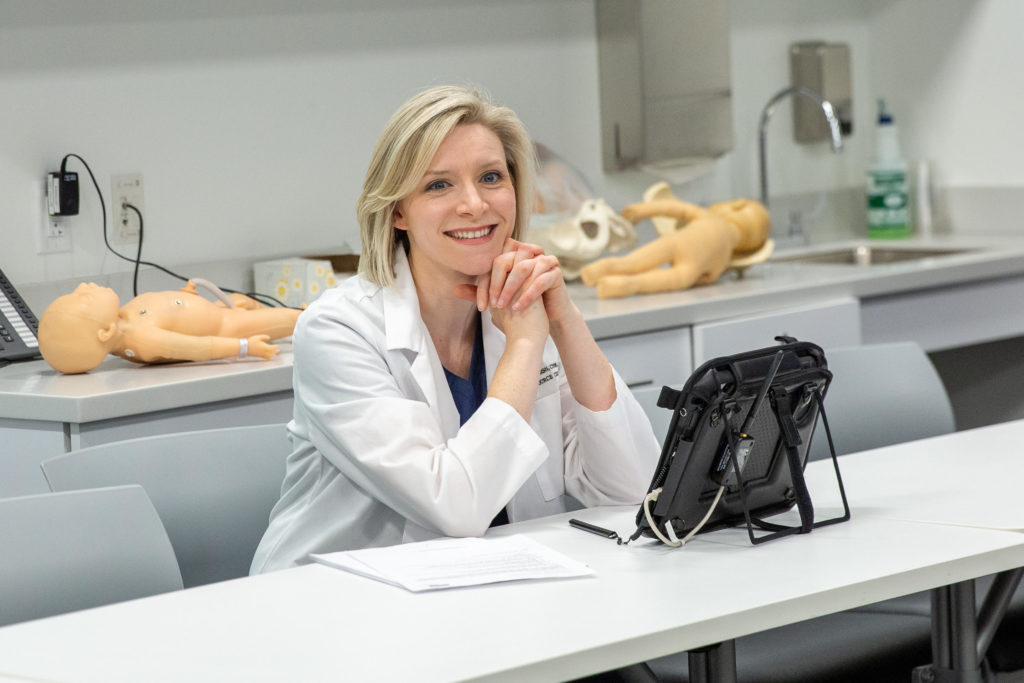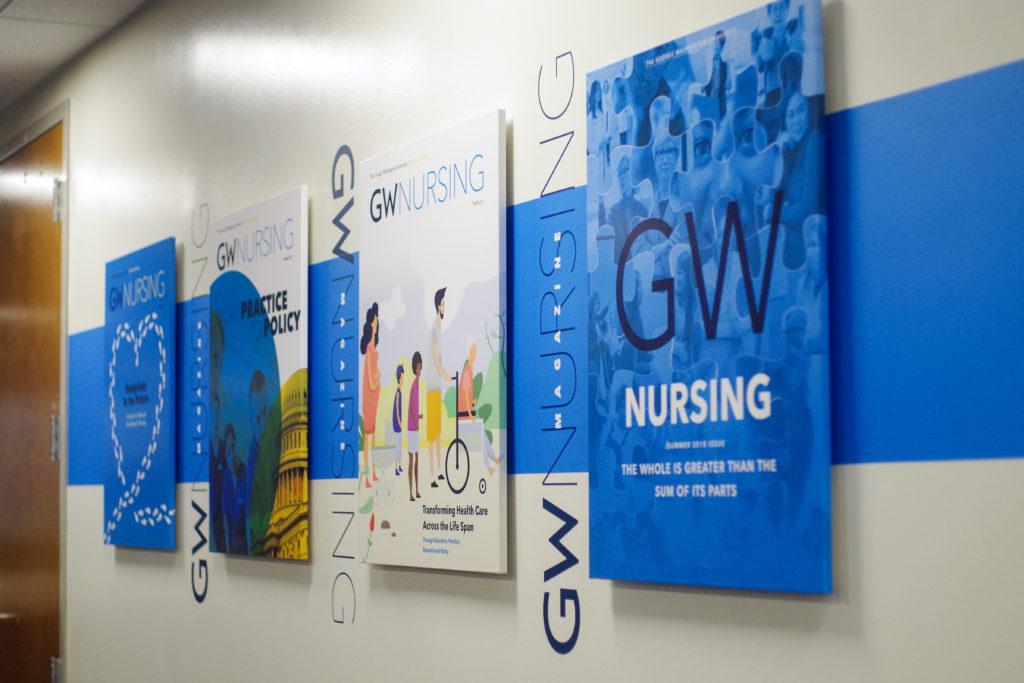A School of Nursing study found new primary care nurses who were treating an overload of COVID-19 patients through the pandemic turned to frequent communication with experienced colleagues and family members to cope with high levels of stress.
The study, published late last month, observed 10 primary care nurse practitioners – also known as NPs – and found that a lack of support from mentors and the nationwide shortage of personal protective equipment were the leading causes of emotional burdens and fears of COVID-19 transmission while treating COVID-19 patients during the summers of 2020 and 2021. The study found that the pandemic’s demand for health care workers shortened NPs’ residency programs because their mentors were furloughed or reassigned for COVID-19 treatment, leaving NPs without guidance from supervisors.
Sarah Beebe, one of the study’s co-lead investigators and a third-year doctoral student in the nursing program, said the study shows that leaning on support from experienced colleagues and supervisors became a coping mechanism for new NPs who get stressed from the lack of guidance from officials in hospitals and clinics.
She said participants frequently mentioned the lack of support they felt from the discontinuation of their residency orientation programs during the pandemic, prompting hospitals to increase their residency programs that rebuild support and mentorship for new NPs.
“I really want our health care systems to recognize that although we may not have the same pandemic again, there’s always going to be something that is taxing our health care providers,” she said.
Beebe said the study highlights NPs because they are a growing population of health care workers who remain a smaller focus group for research studies about burnout than other registered nurses.
She said NPs are taxed by the demand placed on them without any additional support from colleagues and loved ones.
“On top of the emotional and physical burden of COVID, they are expected to continue the same level of care, drive, enthusiasm that they did pre-COVID,” Beebe said.
Beebe said she worked with Sherrie Wallington, an assistant professor of health disparities, and another doctoral student, Dustin McKague, to start recruiting newly graduated NPs from across the country for the study in summer 2020. She said the team used a closed Facebook group for NPs that one of the lead researchers had joined to recruit participants in summer 2021.
She said the team used snowball recruiting – asking respondents to contact eligible friends or acquaintances to participate in the study – to increase participation, which resulted in the total sample size of 10 newly graduated NPs.
Beebe and McKague interviewed each participant once via WebEx for about 30 minutes to an hour, asking questions like “How do you feel being in the role of a NP?” and “What has your mentorship process been like and how has it changed?” according to the study.
The team used MAXQDA, a coding software that organizes data for researchers, to categorize each NPs’ answers under 40 terms most frequently mentioned in the interviews, like “resources/support,” “support/mentorship” and “isolation,” according to the study. Out of the 10 interviews, participants mentioned words like “resources/support” 61 times, “support/mentorship” 42 times and “isolation” 22 times, according to the study.
Beebe said most of the participants’ answers mentioned they adapted to fast-changing technology, like virtual appointments and increased responsibilities from an overload of patients.
She said participants’ loved ones, who didn’t work in the medical industry, struggled to relate to their experiences as health care professionals, which caused a feeling of lack of support from loved ones.
“I think that the pandemic has certainly highlighted just how hard all health care providers work and that they are asked to do above and beyond what a lot of other professions are asked to do,” she said.
McKague, the other co-lead investigator and a third-year doctoral student in the nursing program, said the study’s findings can help employers implement support services that develop coping and adaptability strategies in changing clinical environments for NPs. He said employers should tailor programs for new NPs transitioning to practice that can build relationships and identify methods that promote self-efficacy and confidence.
He said the team hopes the findings can encourage researchers to create more studies about how the pandemic affected the transition for NPs from their graduate programs to practice in clinical settings.
McKague said the study allowed the team to explore potential similarities between other professions in the industry and NPs through themes like isolation and support.
“In the event that another pandemic occurs or some other impactful dilemma occurs in health care, I want to highlight the fact that these things should be addressed when we’re still trying to onboard new graduates into the field,” he said. “We have a responsibility to support new employers in their successful transition.”








